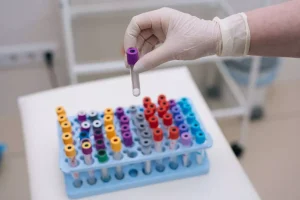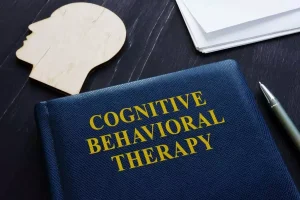
Another way alcohol can disrupt your sleep is by causing you to make trips to the bathroom to urinate. You probably don’t drink a large volume of water just before bed because you know if you do, you’ll be waking up at least once during the night. However, you may not think twice about drinking alcoholic beverages, which will also fill your bladder and spark the urge to urinate. Research also shows that those who drink alcohol before bedtime may experience a rebound in the second half of the night.
Insomnia and Alcohol
Interfering with your body’s natural rhythms will result in lower-quality sleep overall and may even cause you to wake up throughout the night. In other words, though alcohol may cause you to fall asleep quickly, you can expect a restless https://ecosoberhouse.com/ night ahead. The circadian rhythm is your body’s internal clock, which helps you feel awake during daylight hours and sleepy at night. A crucial part of your circadian rhythm is melatonin production — a natural sleep-inducing hormone.
If you want to drink less but worry you’ll miss out on happiness, this exercise could help.

That said, your liver has to work hard to process and filter alcohol, no matter the quantity. Research shows drinking one non-alcoholic beer with dinner can improve subjective sleep quality and decrease how long it takes to fall asleep. Studies show a direct link between alcohol consumption and OSA, since drinking alcohol causes throat muscles to relax. For a person who already has sleep apnea, drinking alcohol can exacerbate the problem, making for an even worse night’s sleep. If you don’t have an existing case of OSA, drinking even a small amount before bed can cause this issue. Research also indicates that drinking alcohol makes a person more likely to experience a sleep-related eating disorder.
- The circadian rhythm is responsible for keeping the body anchored to a 24-hour cycle.
- A 2020 study found that people with ADHD are more likely to consume alcohol to treat their insomnia symptoms.
- If you’re experiencing sleeping issues, whether related to alcohol consumption or not, consider talking to your health care provider or a sleep specialist.
- You should also avoid overstimulation for at least a few hours before climbing into bed.
- Below, we’ll dive into common questions about alcohol and sleep, including how it impacts your sleep, why alcohol makes you sleepy, and how you can get a better night’s sleep after you’ve had a few drinks.
Does alcohol cause insomnia or poor sleep?
If you replace the belief with something new, perhaps even more accurate, like “Alcohol dampens my mood,” the temptation to drink is likely to weaken on its own. It is not intended to substitute for the medical expertise and advice of your health care provider(s). We encourage you to discuss any decisions about treatment or care with your health care provider. The mention of any product, service, or therapy is not an endorsement by NCCIH. NCCIH and the National Institutes of Health (NIH) provide tools to help you understand the basics and terminology of scientific research so you can make well-informed decisions about your health. The NCCIH Clearinghouse provides information on NCCIH and complementary and integrative health approaches, including publications and searches of Federal databases of scientific and medical literature.
As the Sleep Foundation explains, feeling more thirsty in the evenings is pretty common – one particular study in mice suggests it’s to do with ‘anticipatory thirst’, and a way to avoid becoming dehydrated overnight. However, just because you might feel the urge to drink more water doesn’t mean it’s necessarily a good idea. In fact, 12-step recovery programs often refer to the factors that increase a person’s risk for relapse as HALT, standing for Hungry, Angry, Lonely, or Tired. Sleep disruptions may increase the risk that a person will feel tired, which might cause a person to reach for a drink if they feel like they can sleep sober. Unfortunately, recovery and abstinence are more challenging if you aren’t able to get enough good-quality sleep. Difficulty sleeping, particularly when a person feels that they can’t sleep sober, may increase the risk that they will relapse.

How Do You Get Good Sleep After Drinking?
- Drinking a light to moderate amount of alcohol (one or two standard drinks) before bed may not have much of an impact.
- Alcohol also interferes with your body’s ability to absorb essential vitamins and minerals from food, like folate or folic acid (vitamin B9), iron, and magnesium, which fuel your body’s tissues and functions.
- This article discusses how alcohol affects sleep and the disruptions you might continue to experience after you quit drinking.
- People who consume alcohol before bed don’t wake up as often during the first few hours of sleep.
- Many people who are recovering from alcohol use disorders had sleep problems that predated their alcohol dependence.
Combine alcohol with a fatty kebab or a late-night curry and your body has its work cut out keeping you cool and keeping you asleep. Because alcohol is highly calorific, drinking too much means that your body is suddenly faced with having to burn off these additional calories. Interestingly, the harmful effects of alcohol were more pronounced among young people compared with seniors. Most of us probably think that unless someone has alcohol dependency or drinks heavily, they’re out of alcohol’s negative reach.
Julia Pietilä, a researcher at the Faculty of Biomedical Sciences and Engineering at Tampere University of Technology in Finland, is the first author of the paper, which was published in the journal JMIR Mental Health. We use your questions to help us decide topics for articles, videos, and newsletters. Please note, we cannot provide specific medical advice, and always recommend you contact your doctor for any medical matters. Information from your device can be used to personalize your ad experience. Adrienne Santos-Longhurst is a Canada-based freelance writer and author who has written extensively on all things health and lifestyle for more than a decade.

Sleep apnea is a severe problem that can leave you feeling chronically under-rested. Since alcohol affects everyone differently, it’s important to understand where your limit lies and how much alcohol you can drink before it starts to affect your sleep. If you’re does alcohol help you sleep looking for ways to improve your sleep, an easy place to start is by adopting healthy sleep hygiene habits such as keeping a consistent sleep schedule and creating a calming bedroom environment. The circadian rhythm also plays an important role in kidney function.
